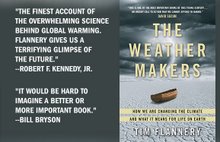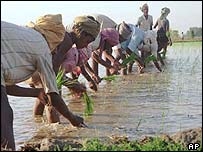PREAMBLE
In our February 14, 2011 blog, we visited the pervasive issue of “regulatory capture” (RC), examining as a case study, sodium regulation in foods. The theory of regulatory capture goes back at least four decades, attributed to Richard Posner and the earlier work of George Stigler (a Nobel laureate), both economists associated with the University of Chicago.
RC is the process by which regulatory agencies eventually come to be dominated by the very industries they were charged with regulating. It happens when a regulatory agency, formed to act in the public's interest, eventually acts in ways that benefit the industry it is supposed to be regulating, rather than the public. As portrayed by The Economist (citing Posner) "Regulation is not about the public interest at all, but is a process, by which interest groups seek to promote their private interest ... Over time, regulatory agencies come to be dominated by the industries regulated." [1]
Recent work by Frederic Boehm throws new light upon this phenomenon: reviewing regulatory capture from the perspective of what can be done to limit it based on a risk analysis (after first analysing the various levels of corruption that can occur), he presents an array of measures to reduce different types of corruption in regulatory processes, preventing capture and ultimately safeguarding the independence, effectiveness and efficiency of regulation.[2] However, it appears all too often, that there is no explicit anti-corruption agenda in regulation. Regulation is widely considered as the key issue in reforms of public service sectors. But it has been pointed early to the problem that regulatory capture in itself could undermine the stated aims of the reforms.[3]
The ethical principle here has long roots and important ramifications across many areas of activity. For example, in the public health field, it is well recognized that "People who work on not only tobacco control, but on chronic disease control, should be critical about receiving money from revenue generated through tobacco sales."[4] Beyond the tobacco industry, there are numerous examples where the credibility of policy makers, regulators, researchers and practitioners may be undermined on the basis of their association with industry e.g., the energy industry, mining interests, agricultural chemical companies, pharmaceutical firms, beverage industries, arms manufacturers, the gambling industry… and so on. This is why government needs to remain at arms-length from such industries, and not be involved simultaneously in regulating and operating such industries. Regulation needs to be based on the best scientific objective evidence; while industrial interests are relevant, those interests should follow, not lead.
Our blog for this month takes note of two additional examples: 1) the extraordinary phenomenon of governments in many countries (including several Canadian provinces) both sponsoring yet also charged with regulating the gambling industry, even as it exacts an enormous toll on health (a provincial responsibility in Canada, therefore an obvious conflict of interest); and 2) the advisory group charged with examining emissions from the Alberta oil sands industry.
CASE STUDY # 1: GOVERNMENT COMPLICITY IN PROBLEM GAMBLING
CONSIDER a British Columbia Government NEWS RELEASE November 30, 2010: In this release, the province’s Solicitor General, whose Ministry both regulates and operates the province’s gambling industry, “commends BCLC for Responsible Gaming” on the basis of its having been awarded “the World Lottery Association’s highest honour recognizing outstanding achievements in the area of responsible gaming.”
[Note: the term “gaming” is a euphemism for gambling, conveying the idea of “fun” rather than psychological addiction which it becomes for many people, from which government (just like the industry as a whole) obviously wants to distance itself].
Discussion
It is notable that the World Lottery Association[5] is itself a classic example of “regulatory capture” as illustrated by its Mission “a member-based organization to advance the interests of State-authorized lotteries” and Vision “for the WLA to be recognized as the global authority on the lottery business, to uphold the highest ethical principles, and to support our members in achieving their vision for their own communities.” Because this is an industry association, such a laudatory News Release from a Solicitor-General is questionable: no such statement would ever come from any United Nations agency with a mandate for health or crime prevention.
Rather than continuing the lead in discussing this particular case further, it is sufficient to draw from statements issued earlier this year by the Institute of Marriage and Family Canada (IMFC):
The Impact of Government Sponsored Gambling on Families and Society
With Nova Scotia and British Columbia (apparently to be followed by Ontario and Quebec) having expanded into online gambling, the Institute of Marriage and Family Canada (IMFC)[6] have called for provincial governments to remove themselves from the gambling business, and for a halt on gambling expansion. The IMFC recently issued a report expressing the essence of the public health view that “provincial governments must get out of the gambling business because insatiable appetites for revenues are creating more addictions and skyrocketing social and economic costs”.[7]
According to IMFC, over $32 per capita is spent annually in Canada to help gambling addicts. The number of problem gamblers has been estimated at 3.2 percent of the population. This estimate would place the annual direct cost of gambling addictions in Canada at around $1 billion. However, the IMFC report argues that an additional 5 to 10 people (spouses, family, co-workers) are affected for each individual with an addiction, making the true impact closer to 12-25 percent of the population. These human impacts will have financial costs to the nation.
Derek Miedema (IMFC’s lead researcher) has noted that problem gamblers often forego basics, such as paying for food, hydro, car payments or mortgages to feed their addictions, with the poor being the most vulnerable. Families with incomes below $20,000 spend more than twice as much on gambling as high-income earners (over $80,000) as a percentage of income, lending "credence that government-run gambling is a tax on the poor," Miedema said. "They've interviewed children where it was clear the mom who is a problem gambler loves slot machines more than her kids. You can't imagine what impact that has on kids - to see Mom spending money on slots when they don't have food to eat," he said. "Or you have one spouse working long hours to bring money in to support the family, and the other spouse spending long hours and money gambling, and it creates conflict. It can lead to family breakdown and crisis."
To quote Miedema further: "It's a conflict of interest… Responsible gambling drops revenues, so it cannot coexist under the same tent..." (as responsibility for health and social welfare and regulation of the gambling industry). Governments should privatize gambling, tax the winnings and use those revenues to fund responsible-gambling initiatives, he said. "If governments are bearing the responsibility of (helping problem gamblers), they have to get out from being the provider of the service." We agree.
CASE STUDY # 2: INADEQUATE STANDARDS OF WATER SAMPLING AND ANALYSIS USED BY RAMP, A GOVERNMENT-INDUSTRY GROUP CHARGED WITH MONITORING THE IMPACT OF OIL SANDS EFFLUENTS SINCE 1997.
The following is an excerpt from a recent report by Andrew Miall, Professor of Geology, University of Toronto, who served as a member of both the Federal Oil Sands Advisory Panel and the Alberta Environmental Monitoring Panel.[8] It speaks for itself in terms of the conflict of interest experienced by a monitoring group representing the industrial and governmental beneficiaries of oil sands development, once contradicted by an independent researcher.
“Just about a year ago, politicians and the general public in the United States were making critical remarks about ‘Canada's dirty oil'. David Schindler, the respected environmental scientist at the University of Alberta published a paper with his colleague Erin Kelley showing that government sponsored environmental monitoring data were inadequate, and James Cameron the Canadian film director (Titanic, Avatar), visited the oil sands to show his concern, and was received respectfully by the Alberta Government. There was widespread alarm at these perceived threats to Canada's reputation and possibly to its export market.
This heightened attention raised public concern to a new level, and both the federal government and the Alberta government realized that action needed to be taken. Several major initiatives were started last Fall, and these are now reaching completion, with whole new sets of analyses and recommendations emerging from government-appointed study groups. A federal Oil Sands Advisory Panel was formed in October, and reported to the then interim Environment Minister John Baird in December. Baird admitted that governments needed to "up their game" with respect to environmental management of the oil sands. He initiated an intensive examination of air and water quality environmental science by his officials at Environment Canada.
The Alberta government appointed a task force in October to examine Schindler's data and to explore the reasons why his results were so different from those resulting from the work of the Regional Aquatic Monitoring Program (RAMP) -- the government-sponsored, industry-funded organization charged with the responsibility for water quality studies since 1997.
The final report of this group of scientists, submitted in March 2011, described the inadequate standards of water sampling and analysis used by RAMP. For example, they had not realized, as had Schindler, that one of the worst sources of air-borne pollution in the surface waters is the winter snowpack. Pollutants from industrial emissions accumulate there all winter long, and are released into the river system rapidly during the spring thaw, at the time when fish are spawning.”
Discussion:
As noted in our February blog, the oil sands industry is perhaps the most visible example of regulatory capture in Canada, where adverse environmental impact is daily more evident. The industry was given disproportionate representation over independent scientists on advisory groups examining the contamination of fresh water sources. The conservative political mentality of federal and provincial governments in this instance, having nothing to do with “conservation”, is an ideology that places commerce above science or public health as a basis for public policy. Given that the RAMP regime held sway since 1997, regulatory capture appears part of their modus operandi.
HOWEVER, it also appears from this encouraging case study that regulatory capture may be reversed in some situations, if a high level of advocacy can be mustered to confront it. In this instance, the advocacy involved independent scientists (willing to put their reputations on the line, against scurrilous lobbying e.g., media outlets aligned with industrial interests), a leading film producer, and the true public media (i.e., media not complicit in the government-industrial conspiracy to subvert what should always have been an independent review, monitoring and evaluation process). Confronted with this force of informed opinion, government and industry clearly backed down.
Whether this will ultimately lead to better practices by government and the oil industry, remains to be seen, keeping in mind that neither the government of Alberta nor that of Canada has yet put in place a comprehensive framework to address oil sands emissions.
REFERENCES:1. Posner R. The Economist - Business School: Research Tools. http://www.economist.com/research/economics/alphabetic.cfm?letter=R)
2. Boehm F. (2010) Regulatory capture revisited – Is there an anticorruption agenda in regulation? Lessons from Colombia and Zambia. IRC Symposium 2010. [Note: This is a shorter and slightly modified version of a chapter prepared for the forthcoming book “International Handbook on the Economics of Corruption. Vol. II”, edited by S. Rose-Ackerman and T. Søreide, Edward Elgar Publishing.]
3. Boehm F. (2007) Boehm F. Regulatory Capture Revisited – Lessons from Economics of Corruption. Working Paper. Anti-Corruption Training & Consulting (ACTC), and Research Center in Political Economy (CIEP, Universidad Externado de Colombia). July 2007.
4. White F. Pacific Health & Development Sciences Inc. Uneasy money: Tobacco philanthropy and conflict of interest in global health. ProCor Global Dialogue. Dec 13, 2010. http://www.procor.org/globaldialogue/globaldialogue_show.htm?doc_id=1435171
5. World Lottery Association http://www.world-lotteries.org/cms/index.php?option=com_content&task=blogcategory&id=13&Itemid=75 Accessed Jan 17, 2011.
6. Institute of Marriage and Family Canada http://www.imfcanada.org/default.aspx?cat=3 Acesessed January 18, 2011.
7. Battagello D. Get out of gambling business, provinces told. Vancouver Sun, Nov 1, 2010 p B03
8. Miall A. Alberta's Oil Sands: A New Regime of Environmental Management? Huffington Post. Politics Canada. November 16, 2011. Posted: 7/26/11 09:40 AM ET http://www.huffingtonpost.ca/andrew-d-miall/alberta-oil-sands_b_906070.html Accessed November 16, 2011.
Envoi: PacificSci will continue to monitor and report on both these situations.
FROM a Great Canadian and World Statesman
"A great gulf... has... opened between man's material advance and his social and moral progress, a gulf in which he may one day be lost if it is not closed or narrowed..."
Lester B Pearson
http://nobelprize.org/nobel_prizes/peace/laureates/1957/pearson-lecture.html
INSPIRATIONAL WELCOME ............................... from T.S.Eliot's "Little Gidding"
If you came this way From the place you would come from... It would be the same at the end of the journey...
If you came, not knowing what you came for, It would be the same... And what you thought you came for Is only a shell, a husk of meaning... From which the purpose breaks only when it is fulfilled If at all.


























